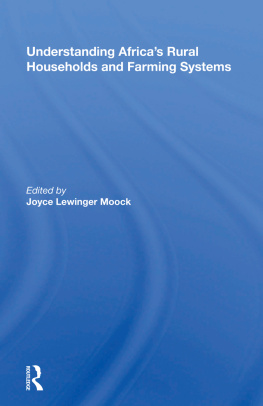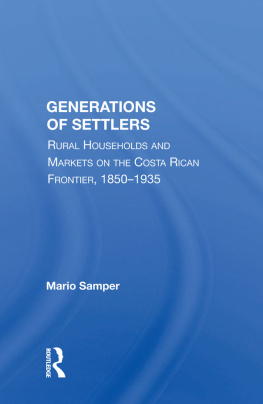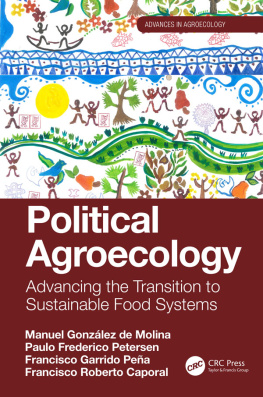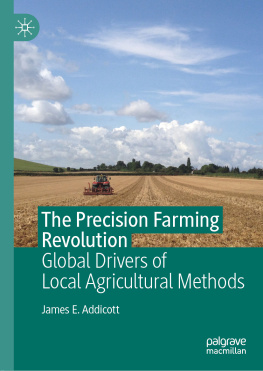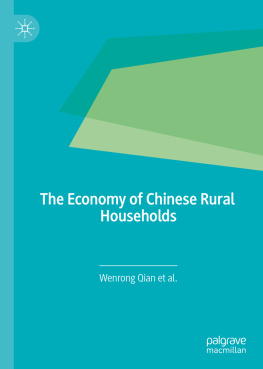About the Book and Editor
In this book, the difficult problems of agriculture in sub-Saharan Africa are examined by the farming systems approach, which aims to improve food production under adverse conditions through agronomic and social science research conducted on the farm. Particular attention is paid to household decisionmaking processes that affect the way households and farms respond to changes in agriculture incentives and technologies, the nature of the farm household as a production and consumption unit, and the division of economic spheres between men and women. The advantages of merging farming systems research with "household economics" theory and studies of kinship organization are also explored. This combined approach highlights new areas with great potential for addressing the problems of African agriculture. The contributors are members of international research institutes, African agricultural agencies, and donor agencies as well as university professors from a variety of disciplines.
Joyce Lewinger Moock is associate director of agricultural sciences at the Rockefeller Foundation and coauthor of Higher Education and Rural Development in Africa: Toward a Balanced Approach for Donor Assistance.
First published 1986 by Westview Press
Published 2018 by Routledge
52 Vanderbilt Avenue, New York, NY 10017
2 Park Square, Milton Park, Abingdon, Oxon OX14 4RN
Routledge is an imprint of the Taylor & Francis Group, an informa business
Copyright 1986 by Taylor & Francis
All rights reserved. No part of this book may be reprinted or reproduced or utilised in any form or by any electronic, mechanical, or other means, now known or hereafter invented, including photocopying and recording, or in any information storage or retrieval system, without permission in writing from the publishers.
Notice:
Product or corporate names may be trademarks or registered trademarks, and are used only for identification and explanation without intent to infringe.
Library of Congress Cataloging-in-Publication Data
Main entry under title:
Understanding Africa's rural households and farming
systems.
(Westview special studies on Africa)
Bibliography: p.
1. Family farmsAfrica, Sub-SaharanAddresses,
essays, lectures. 2. HouseholdsAfrica, Sub-Saharan
Addresses, essays, lectures. 3. Rural families
Africa, Sub-SaharanAddresses, essays, lectures.
I. Moock, Joyce Lewinger. II. Series.
HD1476.A357U53 1986 338.1'0967 85-32318
ISBN 13: 978-0-367-21271-1 (hbk)
More than 45 years ago, E. P. Prentice wrote in Hunger and History that "Mankind evidently has walked with Hunger and Want. These have been his daily companions throughout European history and, could we discover the facts, we would learn that they have been his companions during his whole history."
Today, this statement appears to be more nearly true of the developing regions of the worldand especially Africa, with its current food crisisthan of Europe and the United States, where, thanks to science and technology, nations are able to produce most of their food requirements and can purchase the rest of their needs using foreign exchange earnings from exports of other commodities and industrial products. Plenty and surpluses, rather than hunger and want, are the current companions of Europeans and U.S. citizens. This is not so for Africans and the people of most developing countries.
Farming systems research (FSR) is evolving as an effective, popular research tool in efforts aimed at achieving increased agricultural productivity through the rapid, widespread adoption of technological innovations. Its popularity appears to derive from the perception that FSR rightly addresses the problems of limited-resource farmers, who constitute the majority of the farming population in developing countries. In fact, FSR generally addresses the problems of all categories of farmers, at least initially, through special diagnostic surveys to determine strategies and priorities in research. Researchers then often identify as a "target" those farmers who would experience difficulties in adopting technologies developed through conventional disciplinary researchresearch that rarely gives due consideration to the socioeconomic factors that FSR can identify. FSR also makes it possible to identify component subsystems and technologies in the production systems of target farmers where intervention has the greatest chance of success in rapidity of adoption. Because FSR facilitates understanding of the farmer's overall environment, production system, and constraints on increased production, it leads to the development of technologies that are relevant to the farmers' needs and circumstances. This characteristic has endeared FSR to donors who support projects designed to increase agricultural production and improve rural welfare in developing countries.
Several chapters in this book demonstrate the need for researchers to focus on intra-household processes in order to gain a better understanding of the farming household's economy and relevant household activities; such an understanding would aid in the development of methods to enhance the relevance and probability of adoption of improved technology. FSR emphasizes the role of social scientists, especially anthropologists. The considerable effort currently being devoted to this exercise suggests in part that the complexity of African farming systems was previously not fully appreciated.
Implications for FSR in African Agricultural Production Systems
A farming system, or agricultural production system, is a bioeconomic activity in which the farmer or farm family manages certain resources to produce food, feed, fiber, shelter, and other necessary products. The farmers' objectives include not only production for subsistence and sale but also activities to "kill time" and break the monotony and tedium of living in rural areas. Although the main objective is usually to produce for subsistence and, increasingly, for cash, there are also subsidiary objectives that may be achieved in varying degrees on a given farm. A farming system may involve growing one or more crops, rearing one or more species of animals, or mixing to varying degrees the production of commodities with the rearing of animals. In Africa, a farm may be owned and managed by a single individual or farming family; if a family is involved, more than one family member is usually involved in farm work. Farming objectives may vary for different commodities in different parts of the farm or community; likewise, the objectives of the individuals involved in farming may vary. As a result, decisionmaking processes may involve several individuals, each with his or her own objectives in growing different crops in different situations and with different statuses and roles in the community. Because members of the farm family may be involved in farm work only part-time, their farming activities may be supplemented with a range of other activities, including wine tapping, cotton weaving, drumming, and marketing farm products or consumer goods.
African farming systems usually consist of more than one field system, or micro-environment, located at varying distances from each other and from the homestead. In each of these field systems, there may be variations in the types of commodities produced, the number of individuals at work, the intensity of farming, and the timing of activities. The various field systems under one farm family are often not farmed only by members of the family. The farm activities may involve not only division of labor among the family members but also interactions with other members of the community or adjacent communities. There are even situations where members of different families may own some crops in a field that is being farmed by another family under the prevailing land tenure system.


